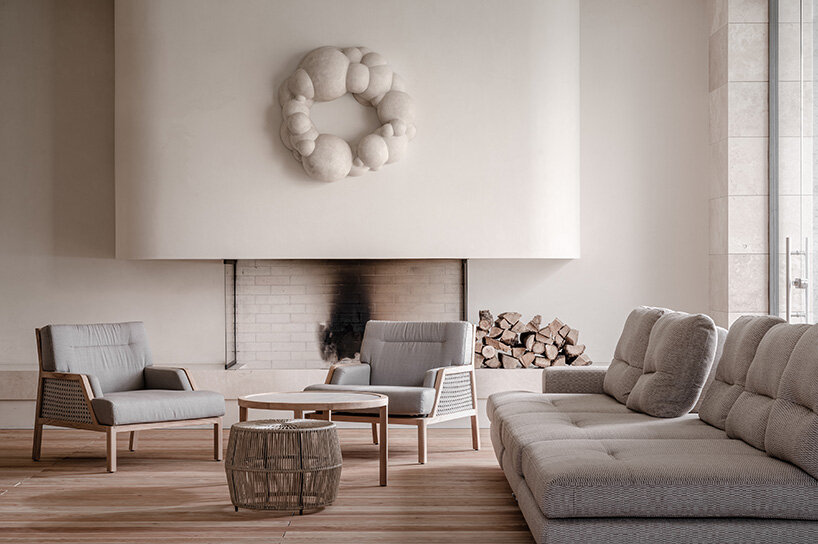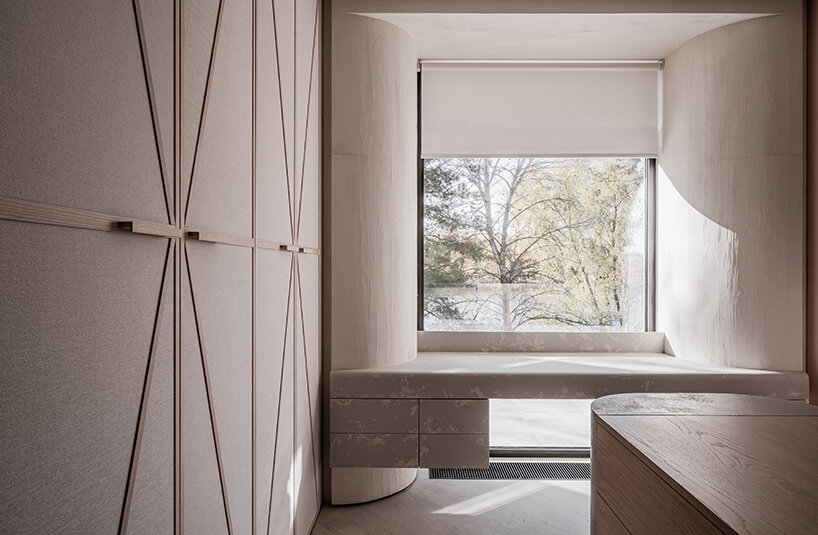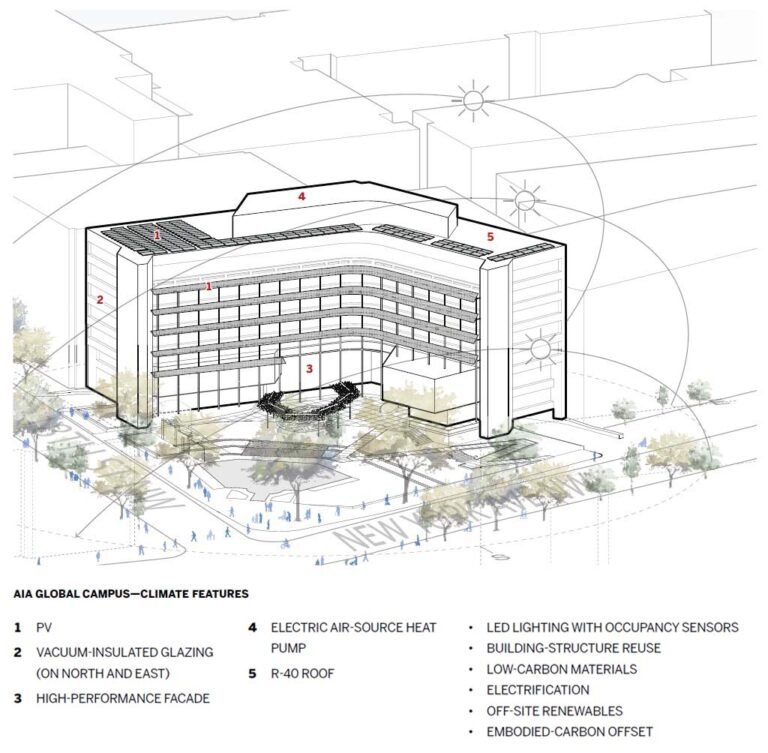with softened forms, sergey makhno architects’ mureli house evokes summertime in ukraine
sergey makhno’s mureli house
Ukrainian firm Makhno Studio presents its Mureli House, a dwelling completed last summer outside Kyiv. Led by Sergey Makhno, the team explains that the project takes its name from an ancient Ukrainian word meaning ‘apricots,’ and is thus designed to evoke the spirit of summertime. This atmosphere is achieved through a softness and lightness in its textures, tones, and volumes. Curving surfaces embrace the occupant and soften the shadows created by sunlight flooding in through large windows.
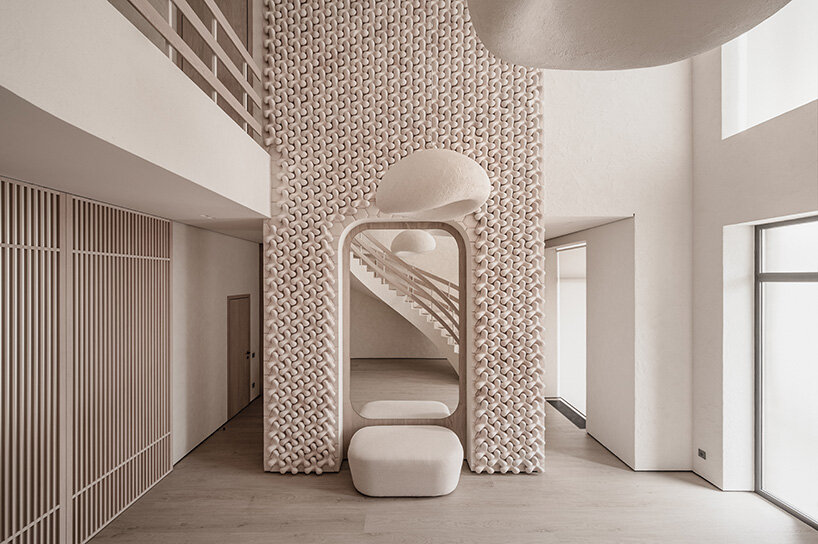 images courtesy Makhno Studio |@makhno_studio
images courtesy Makhno Studio |@makhno_studio
custom tilework and fixtures
The architects at Makhno Studio curate the interiors of the Mureli House with custom ceramic tile-work and fixtures to create a continuity of form throughout. Lofty, double-height spaces are exaggerated with soaring walls of intricate and textural tiles along with ceramic ‘Khmara’ lamps which seem to float gently overhead. Soft forms are repeated throughout the house at every scale, especially in the sweeping gesture of the grand stair and in the walls’ rounded edges and corner conditions.
The architects describe the volumetric logic of the design process: ‘This is a private house that allows you to create design in volumes. We have highlighted the main details. For example, in the entrance group we emphasized the round stairs, accentuated the height with our tiles and our very own Khmara lamps, which are made to order.’
See the architecture studio’s product design pieces including tiles, lighting, furniture, and objects here.
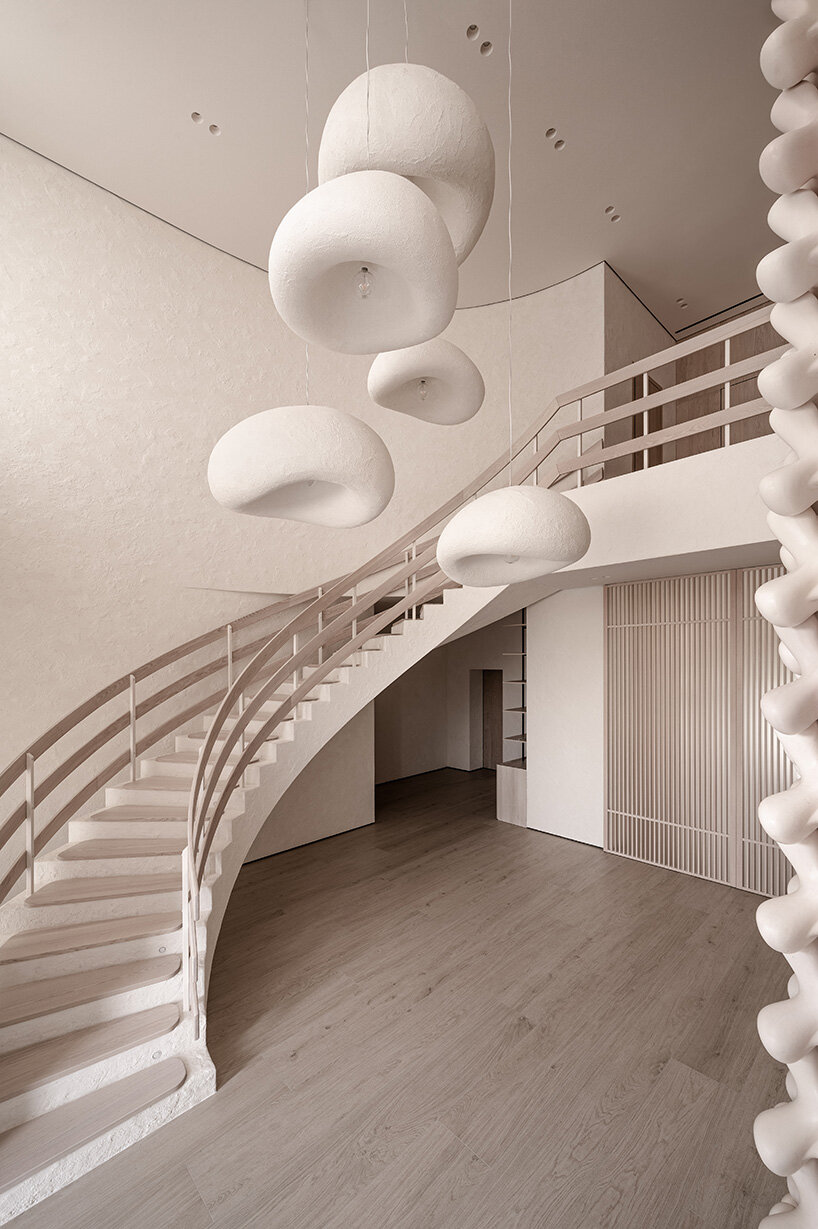
the soft tones of the interiors
Across the three bedrooms, four bathrooms, and shared spaces of the Mureli House, Makhno Studio cloaks the interiors in shades of soft beige with the exception of only two rooms — the area designed for the wife shows a splash of soft pinks, while the husband’s area is punctuated with black and dark grey details. Keeping with the ubiquitous palette, the house is finished primarily in plaster, while wooden detailing is employed in the furniture along with a screen of vertical timber slats along the ground level.
